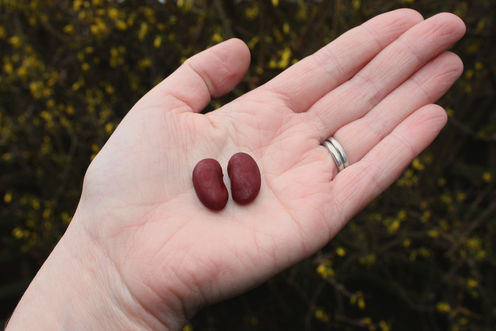
Tucked away just below your ribcage near your spine are two bean-shaped organs known as the kidneys. And when they’re quietly getting on with their job, it’s easy to forget they’re there and how important they are. But their absence, or even less-than-optimal performance can have dire consequences.
Kidneys are a feature-packed, highly efficient filtration and waste elimination system as well as the source of some essential hormones and vitamins. When all is said and done, the “factory-fitted” system for all they do beats alternatives for efficiency and convenience. They’re compact, built-in, self-contained, portable and low maintenance.
About 1,500 litres of blood pass through the kidneys each day, through a series of highly-regulated pumps and channels. Essential nutrients and water are reabsorbed and the waste products created by our cells are removed in volumes ranging from as little as 500 millilitres to as much as ten litres, in the form of urine.
Together with the bladder, which acts as a mechanism to batch this output, kidneys are the ultimate personal waste disposal system, requiring little maintenance. In fact, you could say the greatest inconvenience they pose is the need to occasionally quickly locate “conveniences”.
When things go wrong
Although the list of conditions causing kidney disease is long, dietary and other lifestyle issues are beginning to dominate. More than a third of all new patients are now reaching end-stage kidney disease due to diabetes and about one in eight as a result of high blood pressure.
In contrast, the most common genetic cause of kidney disease (polycystic kidney disease) only accounts for one in 20 patients. Less common causes include autoimmune diseases and the toxic side effects of some medicines. Not only are many of the risk factors for kidney disease the same as those for heart disease, kidney disease itself is considered a risk factor for developing heart disease.

The development of kidney disease is often insidious, as symptoms are non-specific and occur late. Indeed, more than 90% of kidney function may be lost before any symptoms occur.
Common symptoms include nausea, a change in taste or loss of appetite, fatigue and itching, which reflect the build-up of toxins normally eliminated by the kidney. Less often patients may present due to swelling, or because they have noticed the presence of blood or protein in the urine (protein may cause urine to become frothy).
Thanks to advances in technology, kidneys are the only major organs that can completely fail but leave patients alive and reasonably healthy, even out of hospital. If your kidneys do fail, the first step is to get an alternative filtration system up and working. This is known as dialysis.
Dialysis and transplants
The two main types of dialysis are peritoneal dialysis and haemodialysis. Both involve having some sort of permanent access point to enable regular dialysis. While these interventions keep people alive, they only provide at best about 10% to 15% of health kidney function.
Peritoneal dialysis, which can be done at home by patients themselves, involves having a tube surgically inserted into the abdominal cavity to enable fluid to enter.
Haemodialysis, which takes four to five hours and has to be performed three times a week, requires direct access into the bloodstream. This usually involves a surgical connection between an artery and a vein. Once these access points have been established, dialysis can begin.

For eligible patients, a kidney transplant may avert the need for dialysis but it comes with its own problems. In addition to the risks of having an operation and general anaesthetic, unless the patient has an identical twin, the transplanted kidney will be seen by their immune system as foreign.
Left unchecked, transplanted kidneys are soon rejected, and fail. Immune-suppressing drugs can prevent this, but they have serious side effects and have to be taken for the rest of your life. The problem is that currently available immunosuppressants are relatively non-specific in their actions, and suppress the patient’s whole immune system. This makes them much more vulnerable to all sorts of infections, and also cancers.
Clearly, current treatments for kidney failure come with their own significant downsides. Life expectancy on dialysis, for instance, is considerably shorter than that of the general population.
Love kidneys, yourself and others
Chances are, if you are looking after your kidneys, you are also looking after the rest of your body. You’ve probably heard it all before but if you eat a balanced diet that’s low in salt, fat, and sugar, maintain a healthy weight, exercise regularly, drink sufficient water, restrict your alcohol intake and don’t smoke, you are caring for your kidneys.
There will be other benefits too. You’ll also be reducing your risk of diabetes, heart disease, high blood pressure and even cancer.
Despite the limitations of kidney transplants, they can transform and extend the lives of those with kidney failure. Only people with healthy kidneys can donate kidneys for transplantation. So looking after your kidneys may turn out to be an investment in someone else’s future and allow you to give the gift of life.
Christine Carson has in the past received funding from The Rural Industries Research & Development Corporation and companies in the natural products and complementary and alternative medicines industry.
Aron Chakera receives funding from The University of Western Australia, Royal Australasian College of Physicians, Raine Foundation, Western Australian Department of Health.
